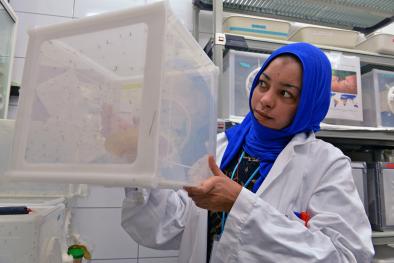Science Source
The Neglected Dimension of Global Security: A Framework to Counter Infectious Disease Crises
- Outlines 26 recommendations written by 17 commissioners from 12 countries aided by input from more than 250 experts who spoke at four public meetings organized by the U.S. National Academy of Medicine over 2015
- Estimates that the global expected economic loss from potential pandemics could average more than $60 billion per year
- Recommends that the world spend about $4.5 billion more each year to bolster the ability of countries to respond to pandemics (an estimated $3.4 billion of the called-for $4.5 billion would go toward upgrading public health capacities in every country, which includes adequately training a work force that can quickly detect and respond to outbreak)
- Urges the world to learn from the many mistakes made during the Ebola epidemic and revamp how it collectively responds to infectious disease crises
Related Content
Science Source
| The Lancet
El Niño and climate change—contributing factors in the dispersal of Zika virus in the Americas? - The Lancet
Shlomit Paz, Jan C Semenza
Science Source
| Proceedings of the National Academy of Sciences
Global risk model for vector-borne transmission of Zika virus reveals the role of El Niño 2015
Cyril Caminade, Joanne Turner, Soeren Metelmann et al
Headline

Apr 7, 2017 | Carbon Brief
Zika outbreak ‘fuelled by’ El Niño and climate change
Science Source
| MMWR. Morbidity and Mortality Weekly Report
Vital Signs: Update on Zika Virus–Associated Birth Defects and Evaluation of All U.S. Infants with Congenital Zika Virus Exposure — U.S. Zika Pregnancy Registry, 2016
Megan R. Reynolds, MPH; Abbey M. Jones, MPH; Emily E. Petersen et al


